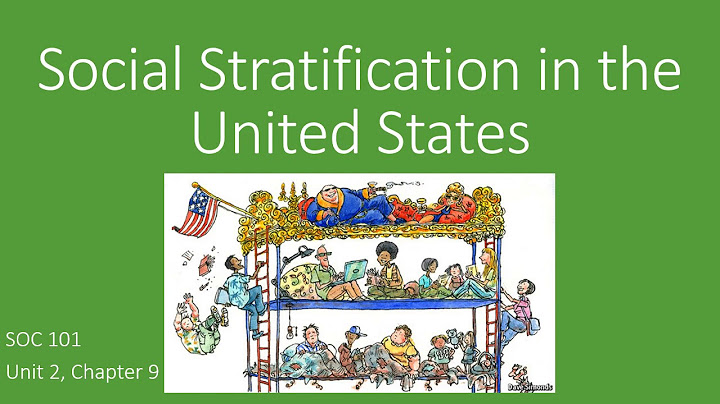What Is the Bandwagon Effect?The bandwagon effect is a psychological phenomenon in which people do something primarily because other people are doing it, regardless of their own beliefs, which they may ignore or override. This tendency of people to align their beliefs and behaviors with those of a group is also called a herd mentality. Show
The term "bandwagon effect" originates from politics but has wide implications commonly seen in consumer behavior and investment activities. This phenomenon can be seen during bull markets and the growth of asset bubbles. Key Takeaways
Click Play to Learn What the Bandwagon Effect IsUnderstanding the Bandwagon EffectThe bandwagon effect arises from psychological, sociological, and, to some extent, economic factors. People like to be on the winning team and they like to signal their social identity. Economically, some amount of bandwagon effect can make sense, in that it allows people to economize on the costs of gathering information by relying on the knowledge and opinions of others. The bandwagon effect permeates many aspects of life, from stock markets to clothing trends to sports fandom. PoliticsIn politics, the bandwagon effect might cause citizens to vote for the person who appears to have more popular support because they want to belong to the majority. The term "bandwagon" refers to a wagon that carries a band through a parade. During the 19th century, an entertainer named Dan Rice traveled the country campaigning for President Zachary Taylor. Rice's bandwagon was the centerpiece of his campaign events, and he encouraged those in the crowd to "jump on the bandwagon" and support Taylor. By the early 20th century, bandwagons were commonplace in political campaigns, and "jump on the bandwagon" had become a derogatory term used to describe the social phenomenon of wanting to be part of the majority, even when it means going against one's principles or beliefs. Consumer BehaviorConsumers often economize on the cost of gathering information and evaluating the quality of consumer goods by relying on the opinions and purchasing behavior of other consumers. To some extent, this is a beneficial and useful tendency; if other people's preferences are similar, their consumption decisions are rational, and they have accurate information about the relative quality of available consumer goods, then it makes perfect sense to follow their lead and effectively outsource the cost of gathering information to someone else. However, this kind of bandwagon effect can create a problem in that it gives every consumer an incentive to free-ride on the information and preferences of other consumers. To the extent that it leads to a situation where information regarding consumer products might be underproduced, or produced solely or mostly by marketers, it can be criticized. For example, people might buy a new electronic item because of its popularity, regardless of whether they need it, can afford it, or even really want it. Bandwagon effects in consumption can also be related to conspicuous consumption, where consumers buy expensive products as a signal of economic status. Investment and FinanceThe bandwagon effect has been identified in behavioral economics as well. Investing and financial markets can be especially vulnerable to bandwagon effects because not only will the same kind of social, psychological, and information-economizing factors occur, but additionally the prices of assets tend to rise as more people jump on the bandwagon. This can create a positive feedback loop of rising prices and increased demand for an asset, related to George Soros' concept of reflexivity. For example, during the dotcom bubble of the late 1990s, dozens of tech startups emerged that had no viable business plans, no products or services ready to bring to market, and in many cases, nothing more than a name (usually something tech-sounding with ".com" or ".net" as a suffix). Despite lacking in vision and scope, these companies attracted millions of investment dollars in large part due to the bandwagon effect. Who First Identified the Bandwagon Effect?The term "bandwagon" stems from the 1848 U.S. presidential election. During Zachary Taylor's successful campaign, a popular performance clown invited Taylor to join his circus bandwagon. Taylor received a significant amount of renown, and people started claiming that his political opponents might also want to “jump on the bandwagon.” How Can One Avoid the Bandwagon Effect?To minimize the bandwagon effect, individuals can benefit from making independent decisions that are free from the bias of outsiders, which is likely easier said than done. Taking an alternative or contrarian position can also help. Why Is the Bandwagon Effect Important to Investors?The bandwagon effect can lead investors to follow the crowd, which may result in asset bubbles or crashes, depending on if the crowd is buying or selling. In either case, people may invest for fear of missing out (FOMO) rather than making individual evaluations of investments and doing due diligence. Buying or selling simply because everyone else seems to be doing it can lead to bad outcomes. What is self efficacy in psychology quizlet?Self-efficacy refers to. an individual's belief in his or her capacity to execute behaviors necessary to produce specific performance attainments. Self-efficacy reflects. confidence in the ability to exert control over one's own motivation, behavior, and social environment. These cognitive self-evaluations influence.
When people believe they have control over events in their lives they have an external locus of control?Locus of control is the degree to which people believe that they, as opposed to external forces (beyond their influence), have control over the outcome of events in their lives. The concept was developed by Julian B. Rotter in 1954, and has since become an aspect of personality psychology.
Which of the following explanations best describes motivation as proposed by Theory Y?Which of the following explanations BEST describes motivation as proposed by Theory Y? Individuals are self-motivated, work hard, and learn continuously.
Which of the following best describes the goals of participative management and empowerment?Which of the following BEST describes the goals of participative management and empowerment? A person with a high level of is gentle, cooperative, forgiving, understanding, and good-natured in their dealings with others.
|

zusammenhängende Posts
Werbung
NEUESTEN NACHRICHTEN
Werbung
Populer
Werbung

Urheberrechte © © 2024 ketiadaan Inc.


















